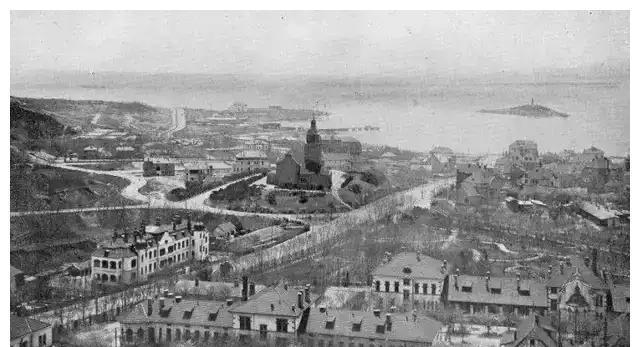On July 28, 1914, World War I broke out in full swing, and Japan and Germany belonged to the hostile Allied and Allied camps, respectively. Since its occupation by Germany in 1897, Qingdao has become a modern city with relatively complete infrastructure after more than 10 years of operation. Japan has long coveted Qingdao because their goal is to occupy all of China, and Qingdao can become a springboard for them to further encroach on China in the future, and Qingdao's developed railway transportation allows Japan to extend its claws to the whole territory of Shandong. Therefore, after Japan declared war on Germany, it sent 40,000 troops to attack Qingdao.
At that time, Germany only had about 4,000 troops in Qingdao, and counting the merchants and expatriates who were spontaneously armed, there were only 5,000 people at best. But the Germans built a large number of coastal forts and fortresses in Qingdao. Despite the disparity in strength between the two sides, the Germans vowed to fight bloody battles until the last moment, leaving the Japanese to pay huge casualties with every step forward.

After the battle, the Japanese, under the cover of gunboats, launched an attack from the German flank, and the Germans used tight fortifications to block the Japanese attack. However, the Japanese had already blockaded all the ports of Qingdao in advance, and the five thousand German troops stationed in Qingdao could not receive any assistance from the outside world, and they had no choice but to surrender after running out of ammunition. Although the Germans did not keep their promise of "fighting to the last man", they inflicted heavy casualties on the Japanese army. According to statistics, the Japanese army killed more than 1,000 people in the Battle of Qingdao, and their victory was bought at the cost of corpses and blood.
The German-Japanese battle took place in China. They have gone to great lengths over their interests, but they have brought great pain to the innocent Chinese people in the vicinity. The frenzied indiscriminate bombardment of Qingdao by Japanese warships left many Chinese people innocent and tragic, and they were forced to get involved in this battle that had nothing to do with themselves, with their wives and children scattered and their families destroyed. A large number of Chinese civilians were recruited by the German army to build fortifications and transport ammunition, and countless people died of starvation and exhaustion.
When the Japanese army attacked Qingdao, it was strongly protested by China, but the weak countries had no diplomacy, and China's protests were ignored by the international community. As a victorious power in World War I, China's sovereignty over Qingdao was taken away by Japan. They wantonly trample on China's sovereignty and trample on the dignity of Chinese. Tens of thousands of Chinese died on the battlefields of Europe, and the deaths were worthless. As a victorious country in World War I, China suffered the treatment of a defeated country.
The shameless behavior of Britain, France and other countries was strongly resisted by the Chinese people, and the Chinese, who had been oppressed for a long time, finally roared. In 1919, the May Fourth Movement broke out in Peiping, an uncompromising, thorough, patriotic movement against imperialist aggression, which aroused the awakening of the Chinese people and struck a blow at the arrogance of the imperialist countries. In 1922, Under pressure, Japan returned sovereignty over Qingdao to China.